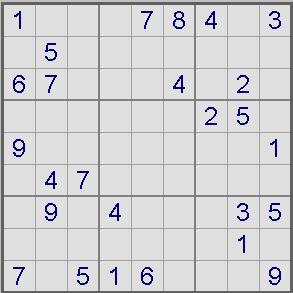I just finished reading Quicksilver by Neal Stephenson. Quicksilver is the first of three books in Stephensons Boroque Cycle, followed by The Confusion and The System of the World. I gotta tell ya, that this is one of the most interesting, well-written, imaginative books I've read in quite a while.
Quicksilver is a period fiction that is completely amazing. It introduces us to a fictional character named Daniel Waterhouse, and takes us through many stages of his life, from his early college years at Cambridge to his latter years at a fledgling MIT- with a bunch of revolution, demise of kings, pirates, and open warfare in between. Just as St. Johns teaches within the context of the "great books" Stephenson breathes life into the Natural Philosophers, and helps us climb into the great minds of Hyugens, Newton, Leibniz.
Stephenson uses a three-part book to bring the late 1600s to life- touching on art, religion, science, mathematics with skill- explaining calculus, astronomy, anatomy-within the context of what the men who first ventured into these areas might have been thinking about. His dialog, and his characters' candid discussion of philosophy help us to imagine what it must have been like to peer into a telescope and predict the movement of planets, to perform scientific dissections, to write new geometric theory- all within shifting religious and political climates.
Stephenson manages to infuse this action-packed story with comedy, drama, scientific and mathematical thought, romance, and cryptography, while intertwining poetry, and references to John Donne and John Bunyon.
I'm going to Borders to buy The Confusion.
Sunday, October 30, 2005
Daylight Saving Time
Apparently, in 1784 Ben Franklin worked out while finishing out his days in Paris as the American Ambassador to France, that in the evening hours shopkeepers and late-nighters were using alot of oil in their lamps the stay up later in the evening once the sun had gone down. He actually worked out how much;
"183 nights between 20 March and 20 September times 7 hours per night of candle usage equals 1,281 hours for a half year of candle usage. Multiplying by 100,000 families gives 128,100,000 hours by candlelight. Each candle requires half a pound of tallow and wax, thus a total of 64,050,000 pounds. At a price of thirty sols per pounds of tallow and wax (two hundred sols make one livre tournois), the total sum comes to 96,075,000 livre tournois."
So he wrote an opinion paper titled "An Economical Project for Diminishing the Cost of Light." In short- he felt that by changing the clocks, people would make more use of natural sunlight, and would need to use artificial light less, thus saving energy and increasing productivity during daylight hours.
Under legislation enacted in 1986, Daylight Saving Time in the United States begins at 2:00 a.m. on the first Sunday of April and ends at 2:00 a.m. on the last Sunday of October, so after this morning, Daylight saving time is over- and will resume next spring. In other words- we are on standard time in the winter months.
In 2007, DST will be extended for four weeks in the States, once again citing energy savings as the reason.
"183 nights between 20 March and 20 September times 7 hours per night of candle usage equals 1,281 hours for a half year of candle usage. Multiplying by 100,000 families gives 128,100,000 hours by candlelight. Each candle requires half a pound of tallow and wax, thus a total of 64,050,000 pounds. At a price of thirty sols per pounds of tallow and wax (two hundred sols make one livre tournois), the total sum comes to 96,075,000 livre tournois."
So he wrote an opinion paper titled "An Economical Project for Diminishing the Cost of Light." In short- he felt that by changing the clocks, people would make more use of natural sunlight, and would need to use artificial light less, thus saving energy and increasing productivity during daylight hours.
Under legislation enacted in 1986, Daylight Saving Time in the United States begins at 2:00 a.m. on the first Sunday of April and ends at 2:00 a.m. on the last Sunday of October, so after this morning, Daylight saving time is over- and will resume next spring. In other words- we are on standard time in the winter months.
In 2007, DST will be extended for four weeks in the States, once again citing energy savings as the reason.
Sunday, October 16, 2005
Sudoku
I just got back from London the other day, and while I was there I noticed bunches of people on the tubes playing a game called Sudoku. Melanie had seen it somewhere before, so she filled me in. The game board looks like this:

The object of the game, according to sudoku.com is;
"Fill in the grid so that every row, every column, and every 3 x 3 box contains the digits 1 through 9.

You can download a desktop version for a 28-day trial or purchase it for $14.95, but I bought a Sudoku book in Iceland, and kinda enjoy using the old pencil (with eraser) method.
Be prepared to be caught-up, because its highly addictive.

The object of the game, according to sudoku.com is;
"Fill in the grid so that every row, every column, and every 3 x 3 box contains the digits 1 through 9.

You can download a desktop version for a 28-day trial or purchase it for $14.95, but I bought a Sudoku book in Iceland, and kinda enjoy using the old pencil (with eraser) method.
Be prepared to be caught-up, because its highly addictive.
Subscribe to:
Comments (Atom)